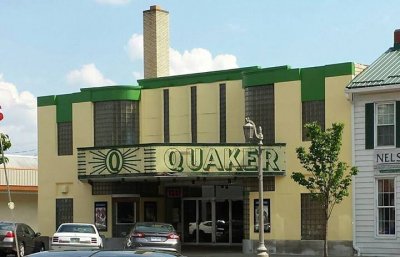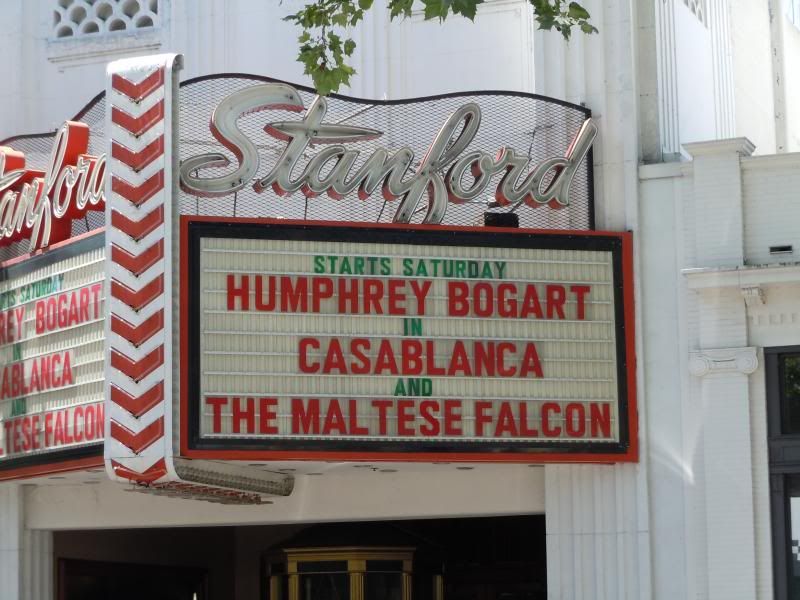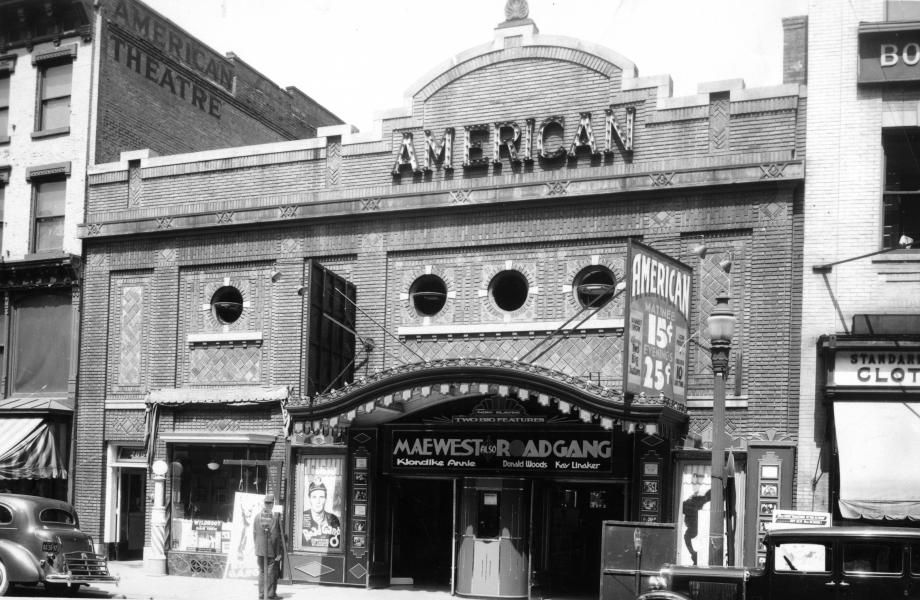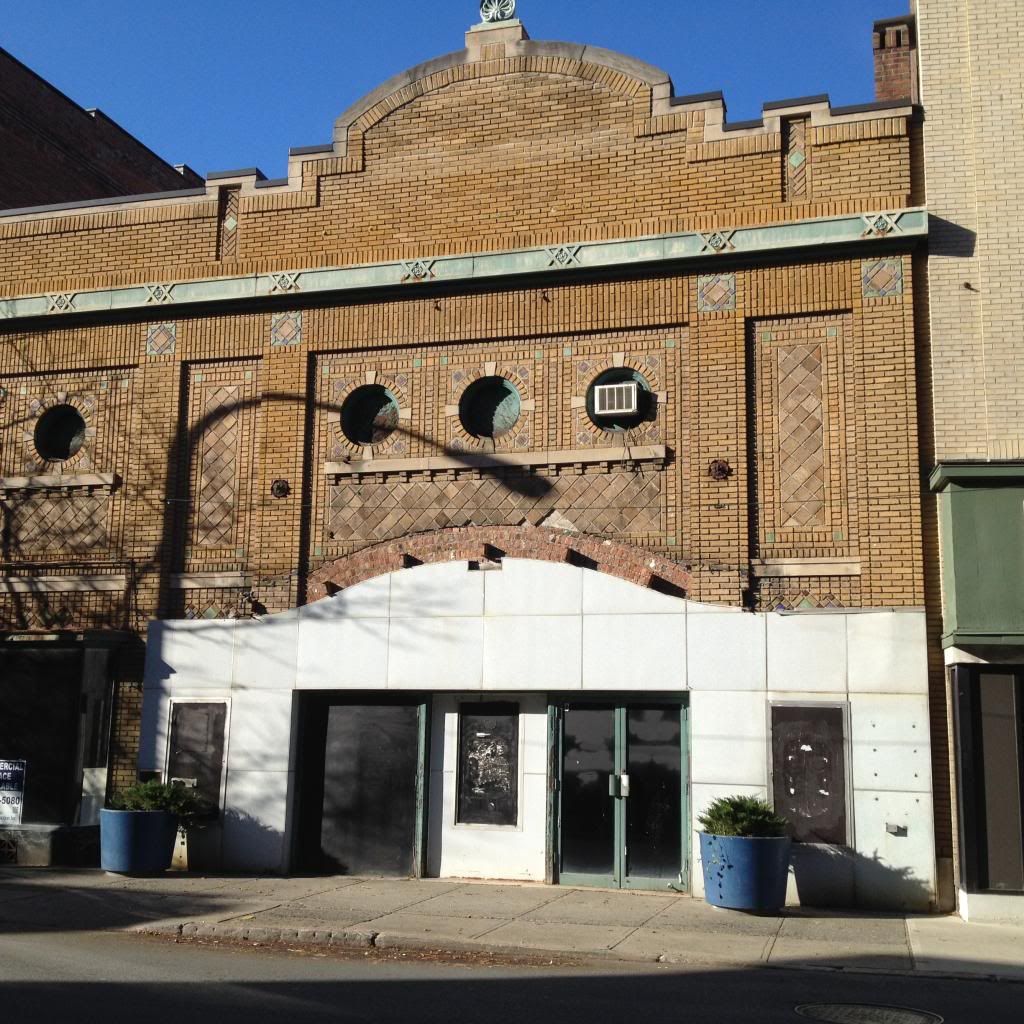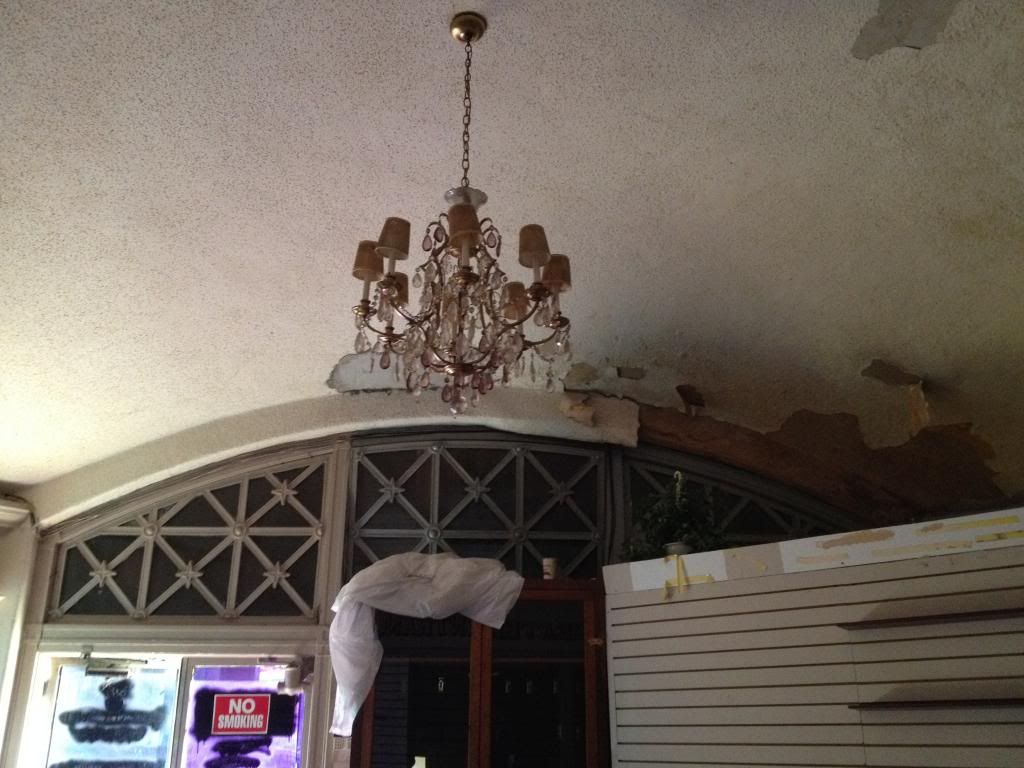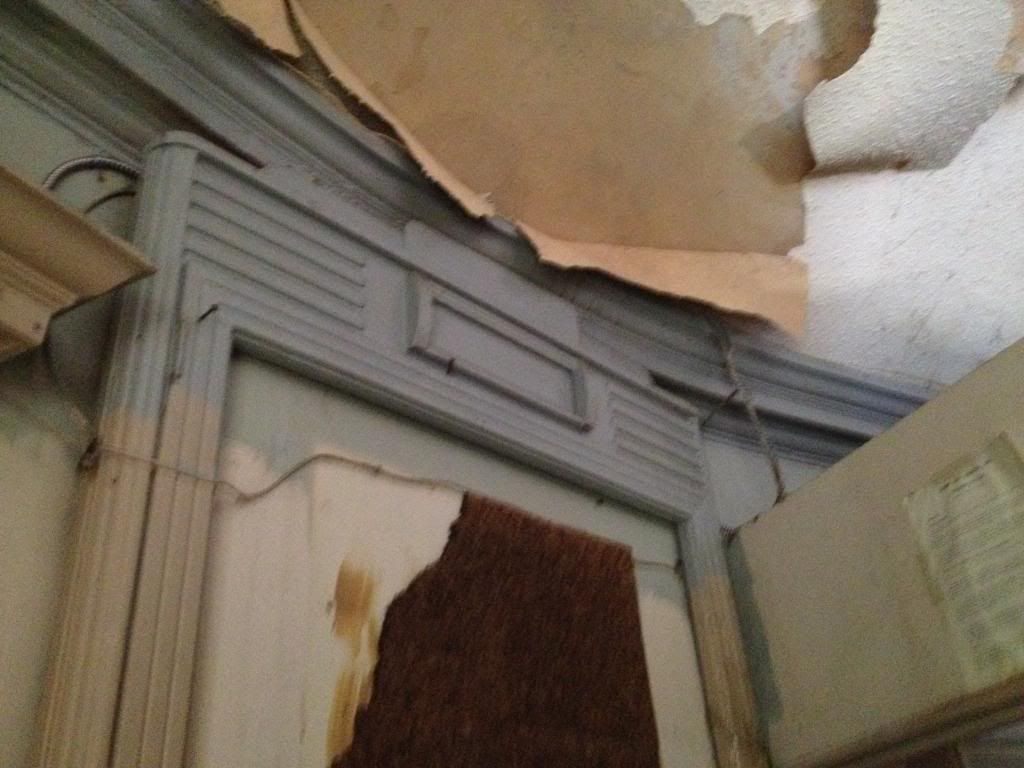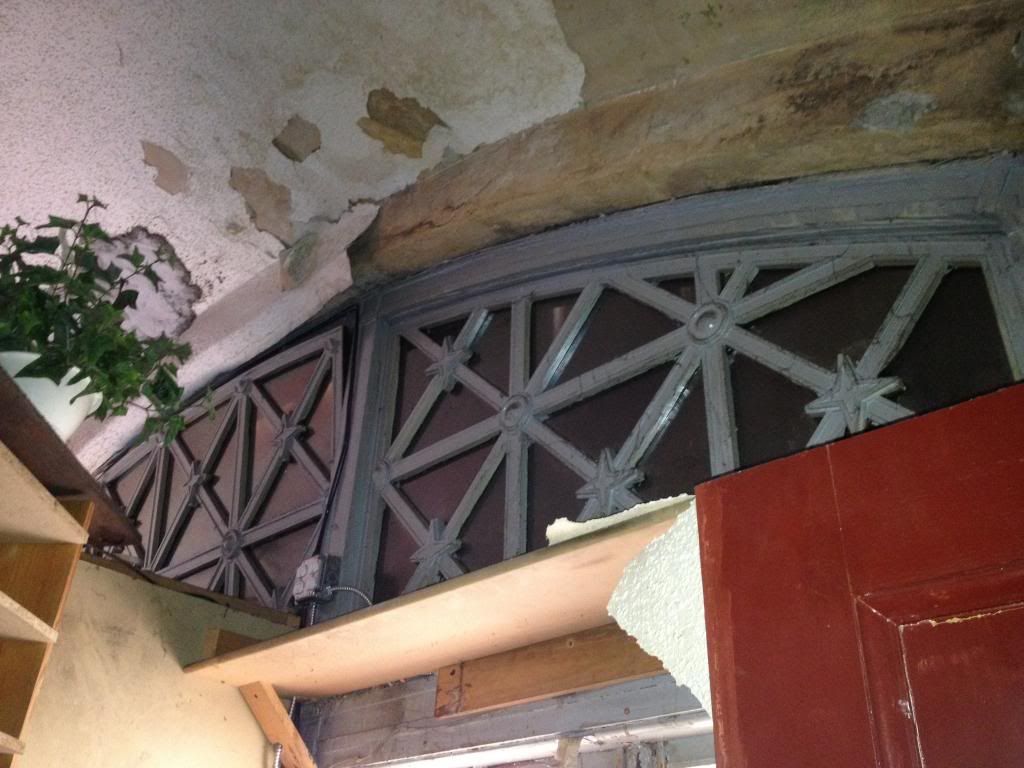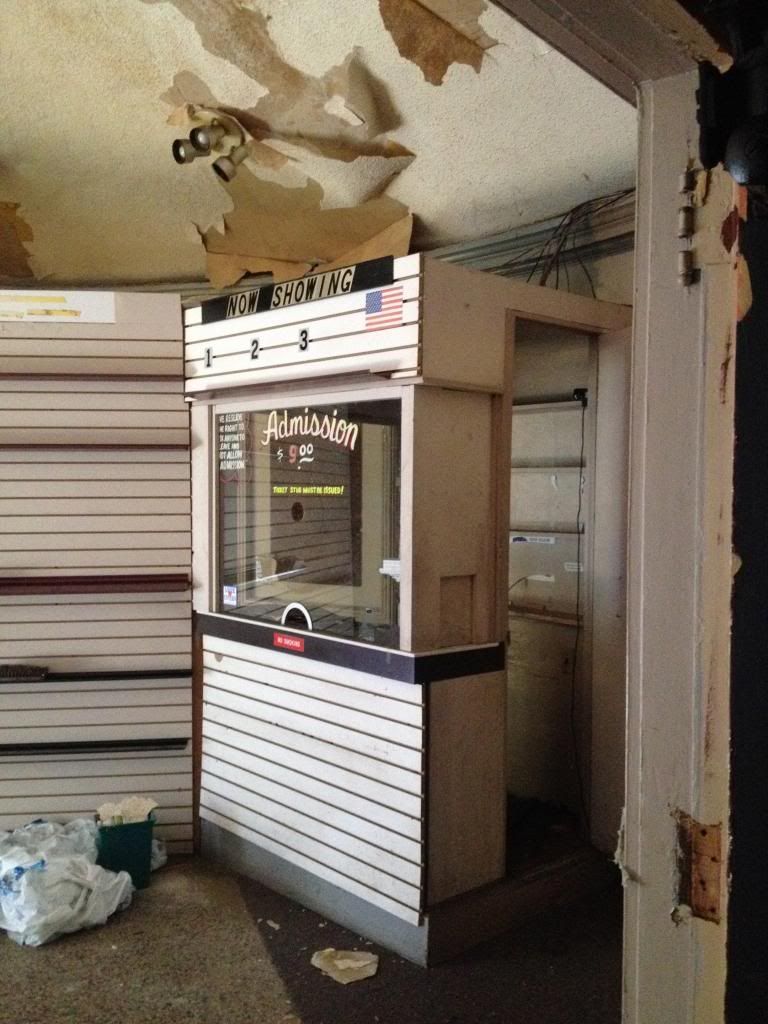Art Deco Theater in Anchorage
4th Avenue art deco theater gets life support
4TH AVENUE: Assembly votes to spend historic preservation funds.
By KYLE HOPKINS
Anchorage Daily News
Published: January 24, 2007
Last Modified: January 24, 2007 at 02:31 AM
The Anchorage Assembly voted Tuesday night to spend $250,000 in historic preservation money to help launch a proposed $5.4 million deal for the purchase and renovation of the 4th Avenue Theatre.
The Assembly's vote doesn't mean the theater plan -- which was put together by the city but recently tweaked to distance the municipality from actually running or owning the theater -- is a done deal.
"It's a lot closer, but there are no guarantees," Chris Schutte, spokesman for Anchorage Downtown Partnership, said earlier in the day.
The partnership is a nonprofit collaboration of downtown businesses. Under the current plan, it would in the end be the majority owner of a new corporation that would own the 60-year-old theater.
A big part of the deal is a loan from the Rasmuson Foundation. But the foundation's chief administrative officer, Jeff Clarke, told Assembly members that the proposal the foundation agreed to has now changed, and that the foundation will have to re-evaluate its role in the plan.
"As elements change, our willingness to participate ... is subject to change," he said.
The Assembly voted 9-2 to appropriate the money, which originally came in the form of a state historical preservation grant. Assemblymen Paul Bauer and Dan Sullivan voted no.
Sullivan said he wasn't convinced the partnership was ready for its new role and he questioned whether the theater would compete with private business, while Assemblyman Dan Coffey said the art deco theater was a good place to put the historic preservation money.
What else in this town is very historic? he said.
When the 4th Avenue Theatre plan was first announced, the city's goal was to close the deal by the end of March. Supporters, who see a risk-free chance to preserve the historic theater, and critics, who question why the city should get involved at all, have debated the plan for the past month.
Late Tuesday night, about 70 people sat in the Loussac Library as the Assembly began to hear public testimony on the theater deal. Most of the crowd raised their hands when asked who was in favor of the plan.
Malcolm Roberts, a senior fellow at the Institute of the North, read a statement from former Gov. Wally Hickel.
"Of all our architectural treasures, the 4th Avenue Theatre must not be lost," Hickel wrote.
Former state senator, and former Assemblywoman, Arliss Sturgulewski, called the theater deal an innovative plan.
"Cities are more than just concrete and steel," she said. "They're also heart and memories."
Anchorage resident Wayne Curley testified against the plan, citing a citywide vote last year in which a majority of voters defeated a measure that would have used city money to help buy the theater.
"I don't know what we're saving the 4th Avenue Theatre from. I haven't heard that anyone's going to demolish it," Curley said.
The building, purchased by current owner Robert Gottstein in 1991 for about $600,000, would generate cash as a venue for events such as parties, meetings and weddings. It would be marketed alongside the Egan Center and the under-construction Dena'ina Civic and Convention Center through a contract with the Anchorage Convention and Visitors Bureau.
Parts of the theater could also be leased for commercial and even residential space.
Along with agreeing to spend the $250,000 on the theater deal, the Assembly also voted to accept and pass through a $600,000 contribution from Gottstein to the Anchorage Community Development Authority, to use for the 4th Avenue Theatre.
Those are just two pieces of a complicated and delicate financing plan.
All told, the $5.4 million deal ends with a limited liability company, controlled by the Downtown Partnership, owning the theater.
The money is expected to come from a mix of sources: A $2.6 million, low-interest loan from the Rasmuson Foundation, the $250,000 in historical preservation money from the city, the $600,000 contribution from theater owner Robert Gottstein and the proceeds from almost $2 million in tax credits handled by Wells Fargo.
Gottstein's contribution is, at least in part, part of the deal to raise the sale price of the theater and make the entire proposal eligible for more federal income tax credits.
Originally, the Assembly was also going to vote on whether to approve a purchase agreement between the theater's seller and the municipality. The municipality would have been the managing member of the company that owned the theater.
Now the deal is different. The Downtown Partnership announced Monday that it had agreed to take the city's place in the purchase agreement, and would now be the majority owner of the company that would own the theater.
The partnership is funded partly with assessment money, or taxes, collected from downtown property owners. The city also pays the partnership money in lieu of assessments that amounts to about $15,000 a year, Schutte said.
Schutte said no property assessment money would be used toward the theater deal.
4th Avenue art deco theater gets life support
4TH AVENUE: Assembly votes to spend historic preservation funds.
By KYLE HOPKINS
Anchorage Daily News
Published: January 24, 2007
Last Modified: January 24, 2007 at 02:31 AM
The Anchorage Assembly voted Tuesday night to spend $250,000 in historic preservation money to help launch a proposed $5.4 million deal for the purchase and renovation of the 4th Avenue Theatre.
The Assembly's vote doesn't mean the theater plan -- which was put together by the city but recently tweaked to distance the municipality from actually running or owning the theater -- is a done deal.
"It's a lot closer, but there are no guarantees," Chris Schutte, spokesman for Anchorage Downtown Partnership, said earlier in the day.
The partnership is a nonprofit collaboration of downtown businesses. Under the current plan, it would in the end be the majority owner of a new corporation that would own the 60-year-old theater.
A big part of the deal is a loan from the Rasmuson Foundation. But the foundation's chief administrative officer, Jeff Clarke, told Assembly members that the proposal the foundation agreed to has now changed, and that the foundation will have to re-evaluate its role in the plan.
"As elements change, our willingness to participate ... is subject to change," he said.
The Assembly voted 9-2 to appropriate the money, which originally came in the form of a state historical preservation grant. Assemblymen Paul Bauer and Dan Sullivan voted no.
Sullivan said he wasn't convinced the partnership was ready for its new role and he questioned whether the theater would compete with private business, while Assemblyman Dan Coffey said the art deco theater was a good place to put the historic preservation money.
What else in this town is very historic? he said.
When the 4th Avenue Theatre plan was first announced, the city's goal was to close the deal by the end of March. Supporters, who see a risk-free chance to preserve the historic theater, and critics, who question why the city should get involved at all, have debated the plan for the past month.
Late Tuesday night, about 70 people sat in the Loussac Library as the Assembly began to hear public testimony on the theater deal. Most of the crowd raised their hands when asked who was in favor of the plan.
Malcolm Roberts, a senior fellow at the Institute of the North, read a statement from former Gov. Wally Hickel.
"Of all our architectural treasures, the 4th Avenue Theatre must not be lost," Hickel wrote.
Former state senator, and former Assemblywoman, Arliss Sturgulewski, called the theater deal an innovative plan.
"Cities are more than just concrete and steel," she said. "They're also heart and memories."
Anchorage resident Wayne Curley testified against the plan, citing a citywide vote last year in which a majority of voters defeated a measure that would have used city money to help buy the theater.
"I don't know what we're saving the 4th Avenue Theatre from. I haven't heard that anyone's going to demolish it," Curley said.
The building, purchased by current owner Robert Gottstein in 1991 for about $600,000, would generate cash as a venue for events such as parties, meetings and weddings. It would be marketed alongside the Egan Center and the under-construction Dena'ina Civic and Convention Center through a contract with the Anchorage Convention and Visitors Bureau.
Parts of the theater could also be leased for commercial and even residential space.
Along with agreeing to spend the $250,000 on the theater deal, the Assembly also voted to accept and pass through a $600,000 contribution from Gottstein to the Anchorage Community Development Authority, to use for the 4th Avenue Theatre.
Those are just two pieces of a complicated and delicate financing plan.
All told, the $5.4 million deal ends with a limited liability company, controlled by the Downtown Partnership, owning the theater.
The money is expected to come from a mix of sources: A $2.6 million, low-interest loan from the Rasmuson Foundation, the $250,000 in historical preservation money from the city, the $600,000 contribution from theater owner Robert Gottstein and the proceeds from almost $2 million in tax credits handled by Wells Fargo.
Gottstein's contribution is, at least in part, part of the deal to raise the sale price of the theater and make the entire proposal eligible for more federal income tax credits.
Originally, the Assembly was also going to vote on whether to approve a purchase agreement between the theater's seller and the municipality. The municipality would have been the managing member of the company that owned the theater.
Now the deal is different. The Downtown Partnership announced Monday that it had agreed to take the city's place in the purchase agreement, and would now be the majority owner of the company that would own the theater.
The partnership is funded partly with assessment money, or taxes, collected from downtown property owners. The city also pays the partnership money in lieu of assessments that amounts to about $15,000 a year, Schutte said.
Schutte said no property assessment money would be used toward the theater deal.
